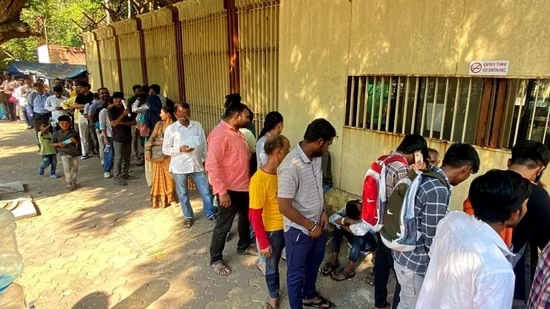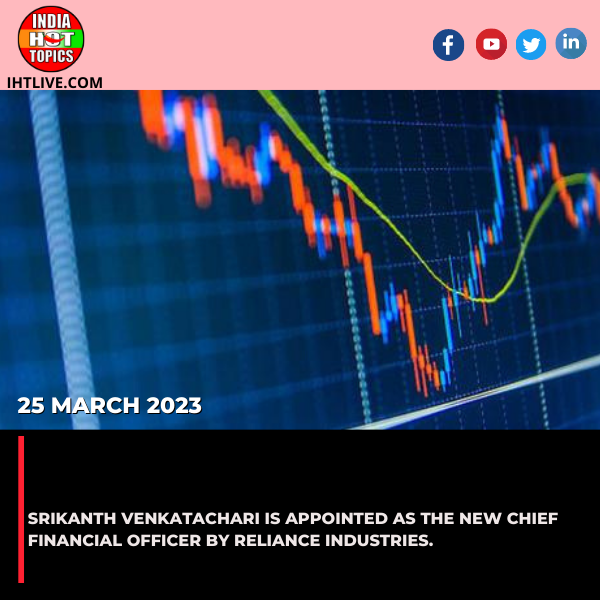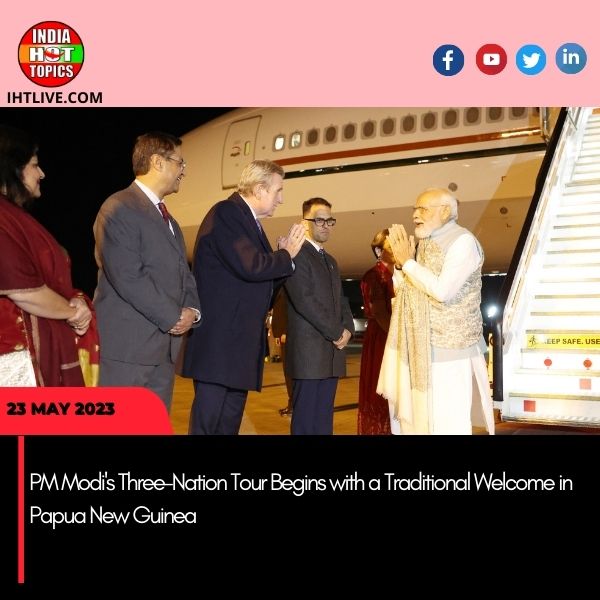India
Karnataka To Repeal Anti-Conversion Law Enacted by the BJP
.jpg)
In a significant move towards safeguarding individual freedom and promoting religious harmony, the state government of Karnataka has taken the decision to repeal the controversial Anti-Conversion Law that was enacted by the Bharatiya Janata Party (BJP) in 2020. This progressive step marks a turning point in the state’s commitment to protecting the fundamental rights of its citizens and fostering an inclusive society. In this blog, we delve into the context surrounding the Anti-Conversion Law and explore the implications of its repeal.
Understanding the Anti-Conversion Law
The Anti-Conversion Law, also known as the Freedom of Religion Act, was passed in Karnataka in 2020. The law aimed to regulate religious conversions by requiring individuals to obtain prior permission from the district magistrate before converting to a different religion. It drew widespread criticism for being an infringement on the right to freedom of religion, as enshrined in the Indian Constitution. Many argued that the law was prone to misuse, targeting minority communities and impeding their right to choose their faith.
Repealing the Anti-Conversion Law
Recognizing the need to uphold constitutional values and ensure the protection of individual freedoms, the Karnataka government has taken the commendable step of repealing the Anti-Conversion Law. The decision comes after a comprehensive review of the law’s provisions and careful consideration of its potential impact on the state’s social fabric. The government’s decision aligns with the principles of secularism and respect for individual rights, fostering an environment where every citizen can exercise their freedom of conscience without fear of persecution or discrimination.
Implications and Significance
- Protection of Fundamental Rights: The repeal of the Anti-Conversion Law signifies a significant victory for the protection of fundamental rights, particularly the right to freedom of religion. It reaffirms the state government’s commitment to upholding the constitutional rights of its citizens and ensuring an atmosphere of religious tolerance and harmony.
- Promoting Inclusivity: By repealing the law, Karnataka sends a powerful message of inclusivity and acceptance. The decision encourages citizens to embrace diversity and fosters an environment where people of all faiths can coexist peacefully, without fear of harassment or discrimination.
- Mitigating Misuse: The Anti-Conversion Law had the potential to be misused to target vulnerable communities and restrict their religious freedoms. The repeal of this law helps prevent its abuse and ensures that citizens are free to exercise their choice of religion without unnecessary intervention or scrutiny.
- Strengthening Social Fabric: The repeal of the Anti-Conversion Law is a positive step towards building social cohesion and strengthening the fabric of Karnataka’s multicultural society. It promotes dialogue, understanding, and respect for diverse religious beliefs, contributing to a more harmonious and united state.
The repeal of the Anti-Conversion Law in Karnataka represents a significant milestone in the state’s journey towards preserving individual freedoms and fostering religious harmony. By taking this progressive step, the government has reaffirmed its commitment to upholding the principles of the Indian Constitution and ensuring that every citizen can exercise their right to freedom of religion without unnecessary hindrance. The decision paves the way for an inclusive society where diversity is celebrated, and citizens are treated with dignity and equality, regardless of their religious beliefs. Karnataka’s move serves as an inspiring example for other states, encouraging them to reevaluate similar laws and embrace a more inclusive and tolerant approach to religious freedom.
General News Platform – https://ihtlive.com/
Entertainment News Platforms – anyflix.in
Construction Infrastructure and Mining News Platform – https://cimreviews.com/
Podcast Platforms – https://anyfm.in/
India
Amit Shah will preside over a high-level Manipur meeting.

Monday night’s meeting to assess the security situation in Manipur will be facilitated by Union Home Minister Amit Shah. This is the first high-level gathering of its kind held by the central government since Prime Minister Narendra Modi’s National Democratic Alliance (NDA) was re-elected earlier this month.
Senior representatives from the federal government, state governments, including chief minister N Biren Singh, the army, and other security agencies are anticipated to attend the meeting at 4 p.m., according to people with knowledge of the development.
Manipur has seen fighting between the Kukis and Meiteis communities since May 3 of last year. The fighting has resulted in at least 225 deaths to far and the displacement of almost 50,000 people, the majority of whom are still living in relief shelters.
The previous few weeks have seen new acts of violence in the northeastern state, including the burning of a school facility close to Moreh and the discovery of the beheaded body of a missing individual.
In the Kangpokpi district last week, armed terrorists assaulted the vehicle of Manipur Chief Minister N Biren Singh’s enhanced security team, injuring a security officer and a civilian driver.
Dr. Mohan Bhagwat, the chief of the Rashtriya Swayamsevak Sangh (RSS), stated on June 10 that Manipur has been waiting for peace for a year and that this problem has to be given priority.
Bhagwat emphasised the importance of putting aside political hyperbole and concentrating on the issues confronting the country.
Dattatreya Hosabale, the general secretary of the RSS, called the current violence in Manipur “painful” and “worrisome.”
The Sangh, according to a statement, feels that the only way to solve any issue is “through mutual dialogue and expression of brotherhood in a peaceful atmosphere.”
In an attempt to mediate peace, Shah had earlier travelled to Manipur last month and convened nine talks with leaders of the Kuki and Meitei groups. Despite this, the violence has not decreased.
General News Platform – https://ihtlive.com/
Entertainment News Platforms – anyflix.in
Construction Infrastructure and Mining News Platform – https://cimreviews.com/
Podcast Platforms – https://anyfm.in/
India
Uttar Pradesh: PM Modi’s visit to the Kashi Vishwanath temple in Varanasi is well underway.

On Tuesday, Prime Minister Narendra Modi will travel to Varanasi, his home district in the Lok Sabha. This will be his first trip to the sacred city since taking office as the nation’s third prime minister.
At the historic Kashi Vishwanath temple, PM Modi is expected to engage with farmers and take part in Ganga Aarti.
What is currently known regarding Prime Minister Narendra Modi’s visit to Varanasi is as follows:
For 4.5 hours, Prime Minister Modi will be in Varanasi. At roughly 4 p.m., he will touch down at Babatpur’s Lal Bahadur Shastri International Airport.
Prior to releasing the 17th installment of the Samman Nidhi, which is intended to benefit 2,76,665 farmers in Kashi, PM Modi will attend a “Kisan Samelan.”
In order to commemorate the farmers in the area, PM Modi will meet with 21 of them at the Kisan Samelan and evaluate their products. BJP party officials are preparing for the visit.
The visit of Prime Minister Modi is a source of pride for the people of Varanasi, according to BJP president Dilip Patel. “We are all proud that Prime Minister Narendra Modi has taken the oath of office three times—once as the nation’s prime minister and once as a member of the Varanasi assembly.”
Following his meeting with the farmers, Prime Minister Modi is scheduled to attend the Ganga Aarti at Dashashwamedh Ghat at the Kashi Vishwanath temple.
Vishwa Bhushan Mishra, the CEO of the Kashi Vishwanath temple, stated in an interview that they have a process for the Prime Minister’s visit. PM Modi is anticipated to spend about twenty-five minutes inside the temple.
Ajay Rai, Modi’s previous opponent for the Varanasi seat, criticised him, claiming that Modi was displacing natives with Gujaratis by handing all employment to them. Regarding the purported dearth of factories and development in the city, he questioned Modi.
General News Platform – https://ihtlive.com/
Entertainment News Platforms – anyflix.in
Construction Infrastructure and Mining News Platform – https://cimreviews.com/
Podcast Platforms – https://anyfm.in/
India
Sunita Kejriwal is requested by the Delhi High Court to remove Arvind Kejriwal’s court footage from social media.

The wife of chief minister Arvind Kejriwal, Sunita Kejriwal, has been ordered by the Delhi High Court to remove a video of her husband speaking to a Delhi court from her social media accounts. The social media companies have also been ordered by the court to remove posts that contain links to the video.
In addition, the high court has sent notices to all parties involved in the PIL, which was filed by lawyer Vaibhav Singh, alleging that Kejriwal’s appearance before Delhi’s Rouse Avenue Court on March 28 violated the court’s regulations regarding video conferencing.
Among the five people requested to remove the social media posts is Sunita Kejriwal.
The court has set July 9 for the hearing.
On March 28, Arvind Kejriwal personally addressed Special Judge (PC Act) Kaveri Baweja after being brought before the court a second time after being arrested by the Enforcement Directorate in connection with the Delhi liquor policy case.
Sunita Kejriwal reposted the images after the audio and video recordings of the speech went viral on social media.
When films with comparable content are brought to their attention, the Delhi High Court ordered X, YouTube, Facebook, and Instagram to remove them.
The notice on the PIL filed by the Delhi-based attorney Vaibhav Singh was issued by a division bench made up of Justices Neena Bansal Krishna and Amit Sharma.
After he disregarded nine summonses from the Enforcement Directorate, Arvind Kejriwal was taken into custody on March 21 in relation to the excise policy fraud. Subsequently, the Delhi High Court affirmed the agency’s decision.
Later, Arvind Kejriwal petitioned the Supreme Court to overturn his arrest.
In order to enable Kejriwal to campaign for his Aam Aadmi Party during the Lok Sabha elections, the Supreme Court granted him temporary release in May for a period of 21 days.
On June 2, he turned himself in to the Tihar Jail officials per the Supreme Court’s directive.
The former bureaucrat Sunita Kejriwal had spent a great deal of time campaigning for the AAP during the Lok Sabha elections. But the party was unable to secure a single seat in the nation’s capital.
General News Platform – https://ihtlive.com/
Entertainment News Platforms – anyflix.in
Construction Infrastructure and Mining News Platform – https://cimreviews.com/
Podcast Platforms – https://anyfm.in/
-

 India11 months ago
India11 months agoThe afternoon briefing revealed that 97.26% of the ₹2000 notes were returned, and the Israeli Prime Minister committed to war goals.
-

 World4 months ago
World4 months agoMichigan splash pad attack: A couple was shot seven times in total while defending their two small daughters.
-

 Business2 years ago
Business2 years agoSrikanth Venkatachari is appointed as the new chief financial officer by Reliance Industries.
-

 Entertainment1 year ago
Entertainment1 year agoNew Season 8 The Walking Dead trailer flashes forward in time
-

 India1 year ago
India1 year agoPM Modi’s Three-Nation Tour Begins with a Traditional Welcome in Papua New Guinea
-

 India Hot Topics1 year ago
India Hot Topics1 year agoCenter ‘busts’ 8 YouTube channels for distributing false information.
-

 Business7 years ago
Business7 years agoThe 9 worst mistakes you can ever make at work
-

 Fashion7 years ago
Fashion7 years agoThese ’90s fashion trends are making a comeback in 2017




